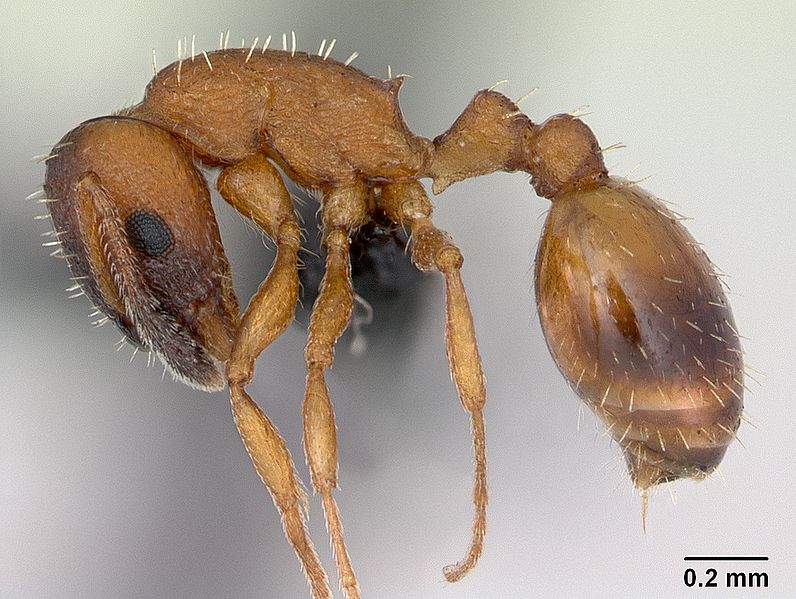
A fascinating new study of Temnothorax albipennis ants challenges assumptions about the self-organization of a colony, according to a recent article by by Danielle Venton, in Wired (August 26, 2011). From “Pioneering Ants Challenge Self-Organization Assumptions,” we learn:
As with other social insects, it was once thought that workers were essentially equivalent in ant colony hierarchies. But it appears that a few well-informed individuals shape group decisions by leading nestmates to new homes.
Most studies of how ants find new nest sites use colonies unfamiliar with a new territory, and assume that all workers follow the same rules. But that’s not realistic, and as a model for self-organization and distributed decision-making — ants have inspired various forms of traffic coordination, from cars to data — it might not be optimally efficient.
“This begins to change how we think about self-organization,” said Nicola Plowes, a behavioral ecologist and ant specialist at Arizona State University, who was not involved in the research. “Informed individuals making those decisions actually result in a process that is more efficient than a simple homogeneous self-organized system.”
It also leads to a promising question: How do some ants get to be more informed than others, and why do the others listen to them?